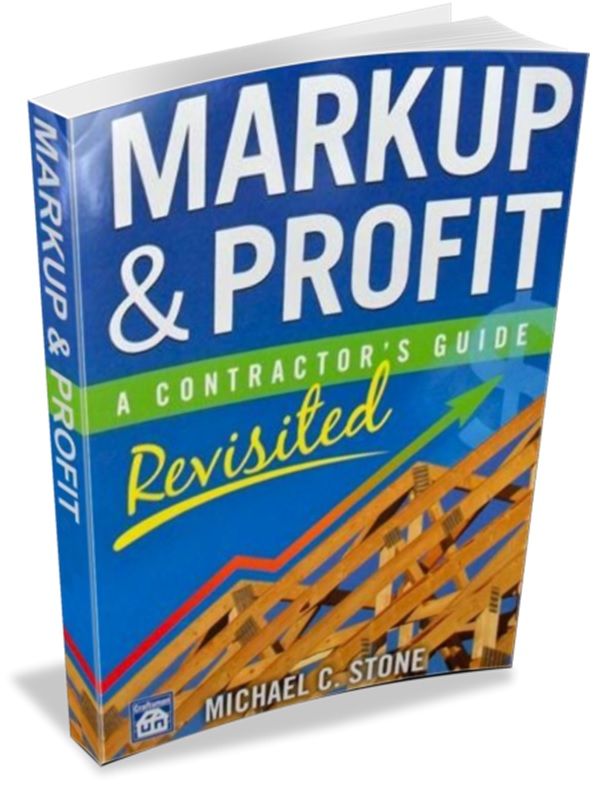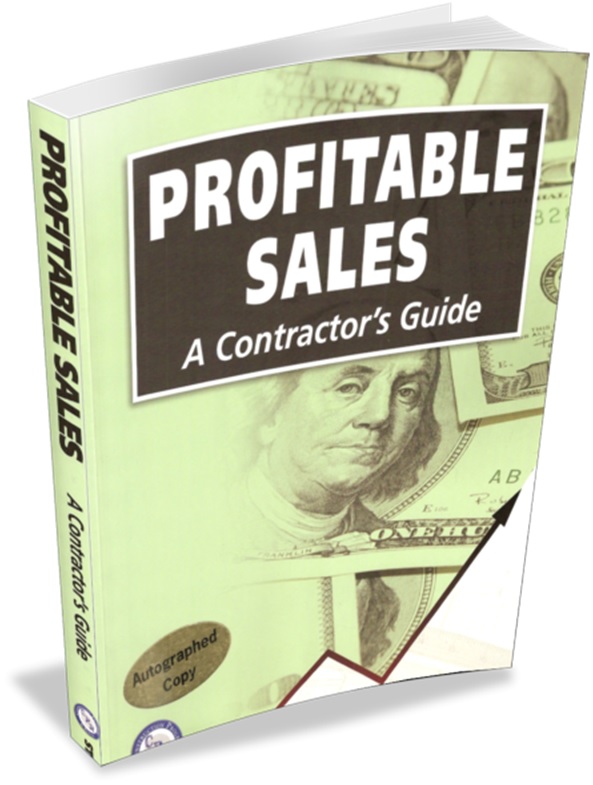
If you’re in the building industry, you’re faced with this question at the start of every new project: How much should I mark this up? If you have a really good handle on your “true costs” of doing business that might be easy. However, in many (most?) cases contractors don’t know what their markup should be.
The other day I had lunch with a very nice young man who’s been a remodeling contractor for 13 years. He made it through the doldrums of the last economic recession but is extremely frustrated because he’s working so hard and not taking home much money.
He does about $500k in remodeling every year and is proud of the work he does, but he’s disillusioned with the business side of his business. Here’s a comment he sent to me:
“I’m well versed in most areas of the trades. I was a talented trim carpenter, have three college degrees, and my existing customers are happy with my work. But I still feel like a ‘blind squirrel’.”
I wonder how many others out there feel like a “blind squirrel”? That’s what prompted me to write this post.
As a former remodeling contractor (for over 20 years!) I do understand what the real markup should be. I knew what my overhead was and what it took to run my business. Every one of my projects had detailed estimates and all costs were tracked and documented. I knew how much I made (or lost) on every project.
I knew my markup had to be at least 45%, but I would usually try to go for a 50% markup on everything. My last year doing remodeling was 1996. I did about $750k in sales and ended the year with a 28% gross profit. I didn’t quite make the 33% profit I was after, but I was close.
But those numbers are massively successful compared to the 18% markup he was adding to his time-and-material agreement. Someone was winning in this arrangement and I guarantee it wasn’t him.
Remodeling is a very tough business. You will be challenged by everyone around you every step of the way. But it can also be very rewarding if you know what you’re doing.
My advice to this young man was this: Decide if you want to go work for someone else and make around what you’re making now but with less stress and risk, or decide if you want to do what it takes to succeed in the general contracting business.
No matter which path you choose, you need to learn more about how a profitable remodeling business works.
After being involved in the construction industry for many years I found that the number one source for real and palatable information about how to succeed as a contractor comes from my good friend Michael Stone at Construction Programs and Results.
I told this young man to go to Michael’s site and immediately purchase two books. I believe these books should be required reading by every person applying for a contractor license (and their employees!). I’ll call these books “Contractor’s Bibles”

Markup & Profit Revisited - A Contractor’s Guide Learn More at MarkupandProfit.com
To succeed in the construction business you have to cover all labor, material and overhead expenses and still make a reasonable profit. This book covers the business basics of running a construction company, whether you’re a general or specialty contractor working in remodeling, new construction or commercial work. Here you’ll find tried and tested formulas that guarantee profits, with step-by-step instructions and easy-to-follow examples to help you learn how to make your business a success.

Profitable Sales, A Contractor’s Guide Learn More at MarkupandProfit.com
Michael Stone’s 30+ years of experience in residential remodeling and specialty sales are shared in this book. Michael explains how to professionally represent your company, determine if a lead is worth your time, establish ground rules with a potential client, address the fears of every potential client, navigate design agreements, letters-of-intent and other documents, help clients make selections, turn a cancellation into a positive event, find, train, motivate and compensate sales staff, and much, much more.
If you’re feeling like a “blind squirrel” or are just looking to sharpen your skills in this industry you should stop what you are doing and immediately purchase, read (and re-read!) these two books. And spend as much time as you can at Michael’s site. It’s one of the best resources out there.


